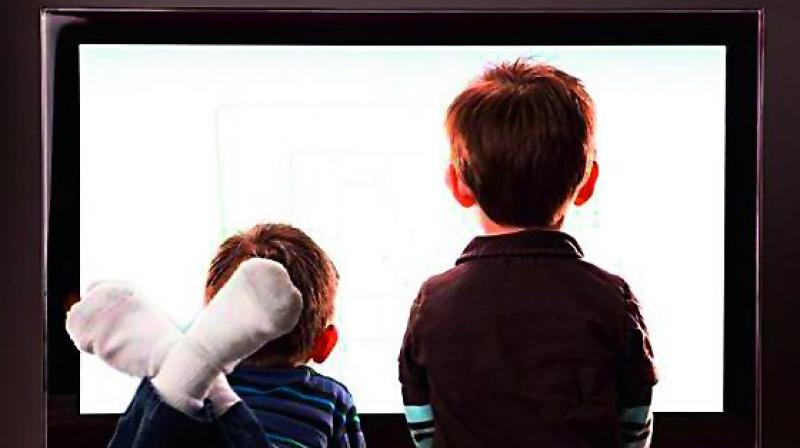Tuned in: How much TV time should the children be getting?
New research claims a bit of screentime is not really bad for the little ones.

At a social gathering the other day, a ten-year-old boy was cribbing bitterly about his discontinued cable television subscription. He was unhappy about being deprived of his usual dose of cartoons and nature shows. But his enlightened parents proudly defended their decision. It was good for the kid, they felt.
Of course, there are those who use the television or a smartphone as babysitters. These parents brag about their child’s tech prowess. They justify saying the hourly inputs from the tele are even helpful for the child’s emotional development. Turns out, they could be right.
It is becoming increasingly clear that denying children access to television and digital devices such as smartphones or tablets completely, is not a good idea. After all, these kids will be growing into a digital world and have to compete with their peers who would have been brought up with generous or excessive screen times. This would clearly put them at a disadvantage in a high-tech world.
In new findings, the American Academy of Pediatrics has declared that there’s good amount of scientific evidence to prove that children “really can learn from well-constructed educational program”.
However, the experts at AAP insist a parental presence is a must while the child consumes information via television.
“This sort of parent participation and reinforcement makes a big difference when it comes to how much young children take away from these programs,” says Dr. David Hill, a paediatrician and chair of the AAP’s Council on Communications and Media.
The AAP also argues that the definition of the “screen” has blurred. A decade ago, consumption of entertainment was limited to the giant screen in the living room — augmented with a cable connection and permitted to access channels ranging from those beaming the latest about gorillas in Africa to what Milan was churning out for the winter.
Screens these days could also mean the tiny, all-powerful mobile phone.
According to AAP then, video-chatting with a parent cannot have a harmful effect on a tot, which is why the organisation has gone ahead to scrap its own “no screen time before age two” advice.
The advice is fair considering how those kids who have been deprived of screen time would be like some of today’s tech-challenged pensioners who are now forced to depend on their grandchildren to book them an app-based taxi service.
On the other hand, indiscriminate and saturated media exposure could undoubtedly harm a child. The nature and extent of the harm could sometimes be exaggerated and at other times debatable, but no one can deny negative impact.
So parents, teachers, educators, psychologists and other stakeholders are grappling with the problem of determining the right approach.
That basic guideline — about parents exercising caution and discretion while allowing children to watch TV — is being debated too. For instance, is it okay to expose children to seemingly innocuous violence in Tom and Jerry? Some believe it has negative effects while others say it is exaggeration or nitpicking.
Another guideline revolves around making a distinction between entertainment and educational content. This again can be quite tricky when it comes to grey areas such as beliefs and values perpetuated in both entertainment and educational content.
Children’s content producers tried to address some of the concerns by commissioning and producing “age-appropriate” content. Once a child masters the ways of the digital world, it will be nearly impossible to restrict access to age-inappropriate content.
So what should parents do? For starters, use parental intuition and take risks and chances. Understand the child’s development and accordingly grant access to content. Extreme positions are best avoided. In a fast changing world, moderation will be the way to hedge risks.
The old adage was, “the family that eats together stays together”. The new adage will possibly be, “The family that has screentime together stays together”.

